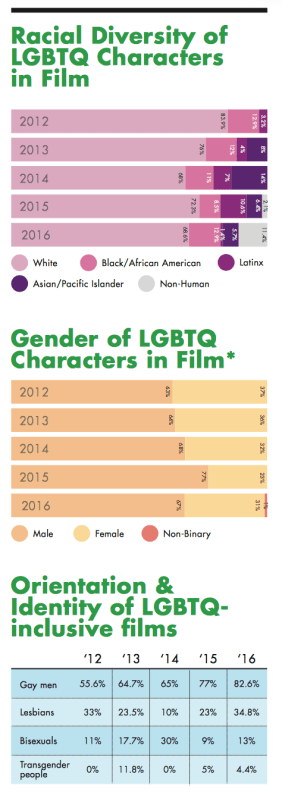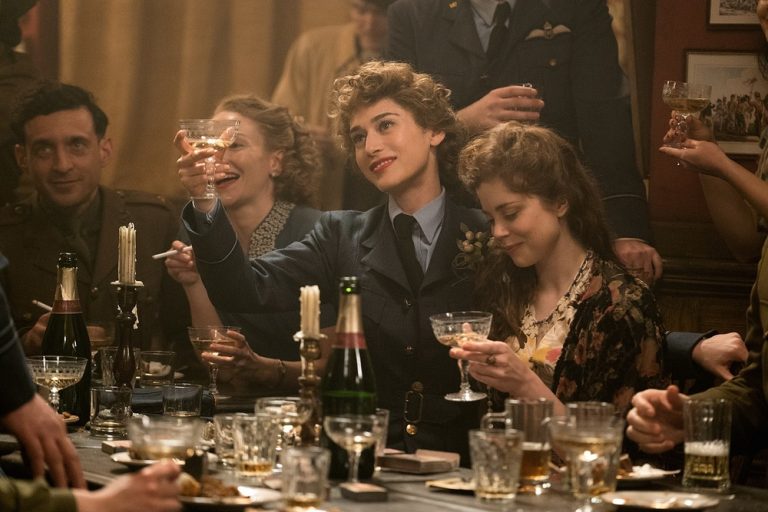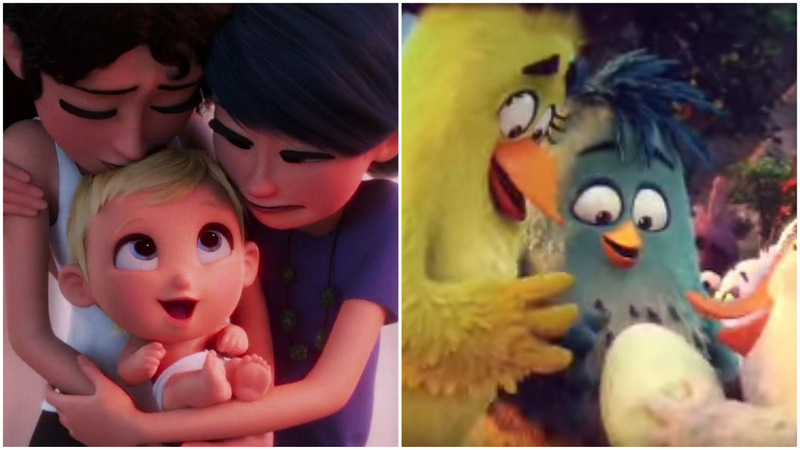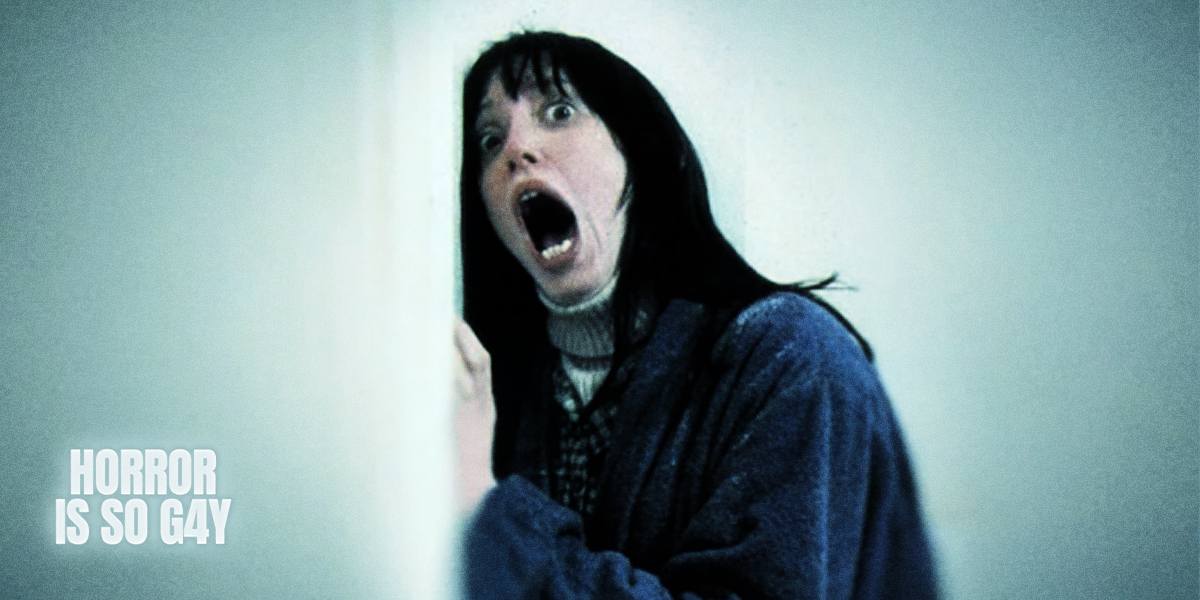
We experienced a major triumph this year when Moonlight nabbed the 2016 Oscar for Best Picture, becoming the first film led by an LGBTQ character to win that particular award, and one of only a few Oscar-winning films focused on Black characters in which those characters were not slaves or servants. Unfortunately, Moonlight‘s critical success is not reflective of overall industry trends, as GLAAD’s highly depressing 2016 Studio index reveals.
The Studio Responsibility Index analyzes releases from the seven film studios that had the highest theatrical grosses from films released in 2016: 20th Century Fox, Lionsgate, Paramount, Sony, Universal, Walt Disney and Warner Brothers. Collectively these studios released 125 films in 2016, which were analyzed by GLAAD for quality and quantity of representation.
Films released by “art house” divisions of aforementioned studios were not included in the data or tallies, but GLAAD did provide some written analysis of those films within their report.
18.4% of analyzed films, or 23 films total, included LGBTQ characters, of which 82.6% were gay men. One huge but easy-to-miss caveat, though: “It is important to note that 14 of [the 70 tallied LGBTQ characters] were part of a single musical number in Universal Pictures’ PopStar: Never Stop Never Stopping, which misleadingly inflated the numbers.” The musical number in question is pretty meta, as it essentially mocks the mainstream’s faux-accepting no-homo mainstream attempts at “inclusivity” that we see throughout the other analyzed films. GLAAD also found that nearly half of the 23 films marked as inclusive gave their LGBTQ characters less than one minute of screen time and that only 20% of LGBTQ characters were people of color. In her introductory letter to the report, GLAAD President Sarah Kate Ellis notes that, looking back on five years of the SRI, “we continue to see many of the same problems repeatedly.”
The basic numbers are bleak, sure, but bleaker still are GLAAD’s summaries of the films. Looking at queer female characters specifically, I found approximately zero who were inoffensive and prominently featured and one who was prominently featured but also was a taco who has sex with a hot dog bun who believes she is having sex with her boyfriend. The taco, voiced by Selma Hayek in the un-beloved film Sausage Party, is referred to by GLAAD as “an oversexualized lesbian,” although many of our readers felt strongly that the taco was bisexual. It’s possible we may never know the truth of this particular matter.
In Whiskey Tango Foxtrot, an older lesbian makes a multi-second appearance in order to hit on Tina Fey’s character Kim Baker. In Bridget Jones’s Baby, we have a lesbian couple “used to prop up a joke about the possible fathers being mistaken for a gay couple.” In Mike and Dave Need Wedding Dates, a lesbian woman and “a man who shows up dressed as a woman” are two candidates who respond to the titular characters’ cragislist ad soliciting dates to a Hawaiian wedding. The man-dressed-as-a-woman apparently eventually “takes off the wig” and “offers the men sexual favors after they turn him down.” This is one of a few films that relied on trans panic tropes for humor, a feat which can be accomplished even without having transgender characters. Mike and Dave Need Wedding Dates also included one of only a few bisexual female characters mentioned in the report, a bisexual cousin named Terry who apparently bribes a woman into having sex with her and solicits two men for a threesome. Although not included in the tallies, the report also gives a shout-out to Keeping Up With the Joneses for “an extended kiss between the two female leads” used as a technique to distract men while transporting weapons. It’s the kind of joke that would be funny if it wasn’t basically the only extended kiss between two women to show up in a major studio film last year. Everybody Wants Some! also gets a not-tallied mention for “a scene in which star player Roper kisses a girl, and then encourages her to kiss the girl next to her” in order to delight fellow partygoers. World War II drama Allied, while gingerly applauded for barely including the relationship between Pilot Officer Bridget and her girlfriend, stops clapping altogether to grimly acknowledge that “in a later scene the film trivializes their relationship when Bridget and Louise oblige a bunch of male soldiers who ask the women to kiss in front of them.”

Although it’s not a lesbian character, I’d like to mention that GLAAD mentions that in Dirty Grandpa we have a male character subject to a “running gag” that he is a butch lesbian.
Two of less than ten lesbian characters mentioned in the report are animated birds who hold hands in the background of one short scene in The Angry Birds Movie and at least one lesbian couple from an ending montage in the animated film Storks. These inclusions, although brief, are still noteworthy for their subtle presence in the notoriously homo-averse genre of children’s movies.

Consider this: the year’s most iconic queer female character in a major studio film, Kate McKinnon’s Jillian Holtzmann in Ghostbusters, was never acknowledged as queer in the film itself although it was basically confirmed off-screen by the film’s creators. Her situation would be clear queerbaiting and therefore drive me bananas were it not for the fact that none of the reboot’s team of female Ghostbusters really had a romantic storyline, gay or straight, which was refreshing in its own way. Suicide Squad’s Harley Quinn was excluded from GLAAD’s tally because her bisexuality, as established in the DC Comics Series, was missing altogether from the film.
Both Absolutely Fabulous: The Movie and Zoolander 2 are given a firm rebuke for their absurdly irresponsible portrayals of transgender people, the latter of which was so fucked up that the trailer, which dwelled obsessively on whether or not Benedict Cumberbatch’s seemingly non-binary character All had “a hot dog or a bun” in their pants, inspired a protest petition. Absolutely Fabulous: The Movie was not a wide studio release, so was not part of the tally, but it sounds like it managed to be transphobic and racist at the same time, because the world is a magical place filled with terrible people who are bad at jokes. Take a gander at this line from GLAAD’s summary: “In the same scene, Bo is wearing a large wig styled as an afro, and says that she is now a “black person,” making a ridiculous parallel between her spouse’s transition and her own assertion that she’s changed her racial identity.”
Other independent studios not included in the tally but discussed in the report include A24, founded in 2012, which produced Moonlight. Gravitas Ventures’s 2016 film All We Had told the story of a mother and daughter who settle in a small town and befriend Pam, a transgender waitress played by a transgender actress. Magnolia Pictures brought us the highly acclaimed Korean lesbian thriller The Handmaiden. Open Road’s Mother’s Day had a subplot with Cameron Esposito and Sarah Chalke playing a lesbian couple with a baby. I watched it on an airplane and honestly didn’t hate it, so there’s that. Strand Releasing, which generally focuses on LGBTQ-inclusive and foreign films, included Summertime, a 1970s-set period romance drama about two women falling in love amid the feminist movement that looks real good. Wolfe Video, which has been entirely dedicated to LGBTQ films from the jump, broke intersectional ground with Margarita with a Straw, the story of a bisexual Indian woman with cerebral palsy.
Also excluded from the tally but discussed in the report were two movies from Sony’s arthouse wing, Sony Pictures Classics. The independent Wall Street drama Equity features a lesbian lawyer who “does have some dubious moments” but “is also the closest the film has to a moral center.” The Meddler has a lesbian couple looking to get married who are “not a major part of the overall story” but “are included as a regular part of the world.”
Ultimately, the last 15 or so years have born witness to a gradual shift in big studio movies from “trying to appeal to lots of different types of people” to “aggressively mainstream.” It’s not just LGBTQ people who aren’t seeing their stories told, it’s also women, people of color, Muggles and others who lack superpowers, automatic weapons and/or spaceships. The 20 films with the highest domestic grosses of 2016 are mostly animated (Zootopia, Finding Dory) or action/sci-fi/fantasy franchises (Captain America: Civil War, Batman v Superman: Dawn of Justice). These are big-budget films with guaranteed audiences, international appeal, and easy merchandising tie-ins. We’ve somehow gotten to the point where when Bridesmaids came out and did well, the entire world freaked out as if female-fronted films had just been invented that very same year when in fact they used to be quite prevalent and profitable. There have been a few recent successes that have hopefully reminded studios that CGI-free movies fronted by women and/or people of color can still make it to the Top 30 domestic grossers, like Hidden Figures, Bad Moms and Get Out.
On the upside, we now have access to more independent lesbian and queer films than ever before, if you know where to look and can manage to avoid the really bad ones. (There are a lot of really bad ones.) Many of these films never obtain a wide theatrical release, but are eventually available on Netflix, Wolfe or other VOD platforms. Our revised list of the 100 Best Lesbian Movies Of All Time includes 16 movies released in 2015 or 2016, including Suicide Kale, Carol, Grandma and The First Girl I Loved. It’s not just that we need “lesbian films,” though, we also need to see ourselves exist within the universes created by mainstream film, too.
Although GLAAD is determined to continue pushing major studios for diversity and inclusion and promises to up the stakes for 2018, I fear that abundant positive representation could remain out of reach for a long time. But surely, I mean SURELY we could at least hope for studio films to stop actively defaming and misrepresenting the few LGBTQ characters it does introduce? Perhaps butch lesbians, femme gay men and trans women could stop being punchlines!!!! Maybe the few movies about LGBTQ people that do get wide releases could not be about AIDS, murder or suicide! A girl can dream, or else, I guess, watch Ghostbusters blooper reels on YouTube. FOREVER.







